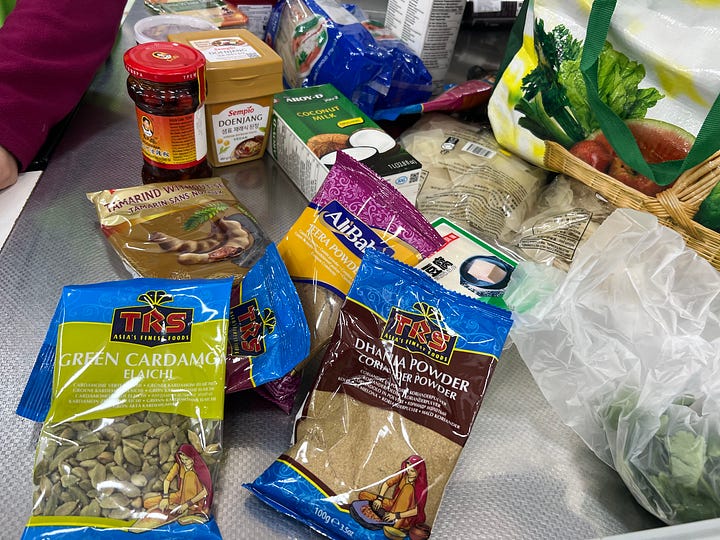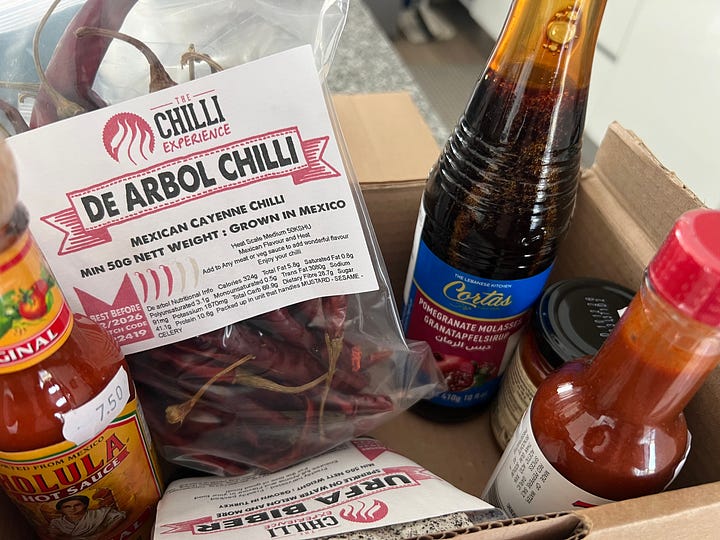In Portugal, the first people we met in our new neighborhood, nestled in a valley between two beautiful vistas, were the Ukrainians. They were on a walk and we were on a slower walk with our elderly dog, so we stopped to introduce ourselves and make small talk with the help of Google Translate. We ran into them again on their way back. They were FaceTiming their son, a surgeon in Ukraine. They invited us to say hello to him at the hospital where he was currently on duty, so we did.
A few days later, Donald Trump blamed Ukraine for starting the war with Russia.
I haven’t seen the Ukrainians since then, but I’ve thought about them a lot, wondering what, if anything, I will say the next time we meet.
Part of the process of immigration is figuring out the pecking order of your disparate identities. Each encounter with someone new gives you the opportunity to experiment with defining who you are, in a personal twist on the “elevator pitch.”
When they heard we were American, Ze Ze, the gregarious older Portuguese man who bought us drinks at our neighborhood restaurant, wanted to talk about the glory days of John McEnroe. D, the Hungarian surfer/digital nomad we met at the beach, wondered what Trump’s end game is, and told us we are lucky we still have elections and term limits. “In Hungary, we have to wait for our prime minister (Trump crony Victor Orban) to die.”
“Seattle? You are from the birthplace of grunge,” said the Latvian we met at yet another bar (are you sensing a theme here?). Coincidentally, he is the business partner of our Latvian downstairs neighbor, who we are having drinks with tonight
That we ran into him, at a bar in a beach town 20 minutes away from home seemed remarkable at first, but then not so much.
I am realizing just how small the world can be.
The world’s greatest surfers converged on Nazaré for the big wave competition, which we attended with a friend. A longtime friend of mine mentioned via What’s App that a friend of hers, currently working in Paris, planned to zip down for the day, so we met up with him too. On the way back to our car, I heard someone calling my name. A woman emerged from a café and I recognized her immediately as a fellow school mom from Seattle.
What are the odds? Maybe better than you think.
The biggest surprise has been the reaction to my surname, Krupnick, which spelled in the original Polish - krupnik- refers to a humble barley soup considered comfort food in the Slavic world. You can read its history here, and learn the Yiddish proverb it inspired: I’d rather have krupnik at home than roast duck with strangers. My ancestors hailed from Lvov, now Lviv, once part of Poland, now in Ukraine. The Ukrainians recognize my name and so do the Poles I play pickleball with.
I am Alison. I am American, but I am not my government. I am from Seattle. I am Barley Soup.
During the first jet-lagged nights after we arrived I entertained myself by reading my Foreign Service friend Tom Navratil’s delightful new book, Dog’s Breakfast, a satiric power-struggle tale set in a mythical country. Tom gets the nuances of Embassy life just right, and, through the experiences of Tara, a newly arrived Foreign Service Officer, I was transported back to 1986, when starry-eyed, I arrived for my first tour of duty in Bombay (now Mumbai), India.
Waking up in Portugal, there were similarities. The novelty and delight, the head-scratching experience of trying to figure out how things work, the fatigue at the end of the day from all the mental energy being expended.
But also, the doomscrolling.
Because try as I might, I can’t avoid reading the news from America, each day bringing a new outrage. I read about boycotts and legal injunctions and hot takes about overreach and popularity polls and the fervent hope that something will finally bring this madness to an end.
I had three goals in coming to Portugal - 1) embrace a variety of perspectives, moving away from an ingrained idea of American exceptionalism to the more open acknowledgement that there are many different ways of doing things and in the end, human beings are more alike than different (see Maslow’s hierarchy of needs); 2) be open to new ideas and experiences (which is why I have agreed to participate in a Mardi Gras masked pickleball tournament) and live life with gusto; 3) build and foster a mutually supportive community of friends who can age in place together.
In short,
I’d rather eat krupnik at home than roast duck with strangers.
I’ve always been drawn to Voltaire’s line in Candide about cultivating your own garden. Not in a head-in-the-sand way, but in a do good where you can way.
For me, so much of creating home and community starts in the kitchen.
Even though they were heavy, I’m glad I lugged 30 or so cookbooks from Seattle to Portugal. Because food as a gateway to understanding other human beings has always been a core component of my identity. That’s my elevator pitch.
I’d been told that shopping for groceries here is like embarking on a treasure hunt. There are several different grocery chains, each with a different array of offerings. I admit, I was feeling a little lost as I tried to cobble together meals from local ingredients and figure out how to work the induction stove and oven.
But a trip to Supermercado Chen, near the Lisbon airport, and an order from The Chilli Experience returned me to equilibrium, providing me with the range of ingredients I am used to that represent the best of many different cultures.


Centuries ago, the Portuguese were leaders in the spice trade, bringing civilizations together through food.
They were onto something.
The Best Thing I Cooked This Week
Roasted Cauliflower with Tahini Sauce from Saveur, the New Classics
You don’t really need a recipe to make this, but I decided to make use of my 171 Kindle cookbooks and use one.
I took a big, bountiful Portuguese cauliflower and marinated it in olive oil and the cumin I’d bought from Supermercado Chen’s and roasted it in my induction oven. Then, I mixed tahini with garlic and lemon juice from a lemon tree in the garden of my Salgueirinha home and finished it with Flor de Sel from the Algarve and Piment d’Espelette that comes from the Basque Country, by way of Seattle.
It was everything I was and am hoping for.







Your question and the question mark are exactly right. And your reflections remind me so much of the advice from Rilke: “…try to love the questions themselves like locked rooms and like books that are written in a very foreign tongue. Do not now seek the answers, which cannot be given you because you would not be able to live them. And the point is, to live everything. Live the questions now. Perhaps you will then gradually, without noticing it, live along some distant day into the answer.” We are living the question, truly.
Great post! I love (and share) your three goals for living here.